Gemstone mining
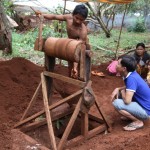
There is no large-scale industrial mining of gems in Cambodia, and few full-time miners. Most people involved in looking for gemstones fit it around other work – typically farm work – and mostly do it without licenses. As with artisanal mining, miners are often very ...
Ministry of Economy and Finance
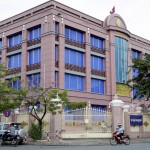
National Bank of Cambodia, Cambodia. Photo by Stephen McGrath, taken on 21 June 2010. Licensed under CC BY-NC-ND 2.0 In 1996, the Ministry of Economy and Finance (MEF) was established by law.1 Its organization and functioning is defined by a sub-decree of the Royal Government ...
Special economic zones
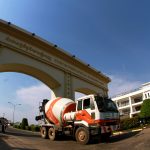
A Special Economic Zone (SEZ) is a defined area within a country that is subject to different laws and regulations than other areas of the country. These comprehensive industrial areas provide preferential incentives to investors and offer government import-export administrative support to facilitate trade. Though ...
Electricity production
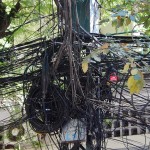
In Cambodia, electricity demands have been forecast to grow at 17.9 percent annually from 2012 to 2020.11 Distribution of electricity around the country has been a challenge: according to UN data, 79 percent of people live in rural areas,12 and the entire national population had grown ...
Energy policy and administration
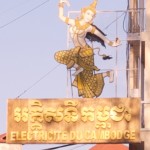
Electricite du Cambodge (EdC). Photo by bmeabroad, taken on 10 November 2011. Licensed under CC BY-NC-SA 2.0.Low electrification rates and over-dependence on fossil fuel imports have contributed to Cambodia ranking 120 out of 124 nations in the new World Economic Forum’s Global Energy Architecture Performance Index ...
State public land

State public land has a public interest value or provides a public service. The land is inalienable, although it can be leased for limited uses that do not alter or damage its public value. State public land should only be reclassified if the land no ...
Land tenure and land titling NGOs
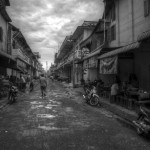
There are four major international donors to land rights development and reform in Cambodia: the World Bank, Germany, Finland and Canada. Their support spans multiple programs and several years with the overall objective of improving land tenure security and promoting stable land markets. ...
Private non-profit development assistance
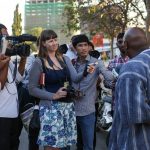
Maina Kiai speaking with journalists outside the Ministry of Foreign Affairs in Phnom Penh. Photo by Maina Kiai, taken on 6 February 2014. Licensed under CC BY 2.0The first humanitarian international non-governmental organizations arrived in 1989. After the 1993 election, more and more internal organizations ...
Agricultural production
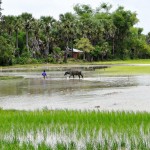
Rice field in Cambodia’s countryside. Photo by fmpgoh, taken on 15 July 2009. Licensed under CC BY-NC-ND 2.0The main products from the agriculture sector are rice, rubber, corn, vegetables, cashews and cassava. Unprocessed agricultural exports were projected to be more than 90 percent of total agricultural ...
Water policy and administration

In Cambodia, alternate periods of drought and heavy rains bring challenges for water management. The current trends show increasing annual rainfall and temperature throughout Cambodia, with a likelihood that both flooding and droughts will increase in frequency, severity and duration144. Water management involves issues of ...
Ministry of Commerce
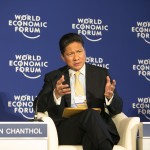
In 1996, the Ministry of Commerce (MoC) was established by law. Its organization and functioning is defined by a sub-decree of the Royal Government of Cambodia. After a nomination of the Prime Minister’s candidate and the vote of confidence on the cabinet by the National ...
Fisheries production
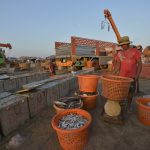
Local workers loading fresh catch to be transported to the city market at Chhnoc Trou pier, Kampong Chhnang province, Cambodia. Photo by Sylyvann Borei/World Fish, taken on 7 April 2014. Licensed under CC BY-NC-ND 2.0.Cambodia has abundant and productive fisheries. Fish is a traditional staple in the Cambodian ...
Forest classifications
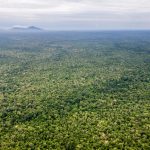
The classification of forests is set out in the Law on Forestry 2002. The law applies to both natural forests and plantations, and “defines the framework for management, harvesting, use, development and conservation of the forests in the Kingdom of Cambodia. The objective of this ...
Air pollution
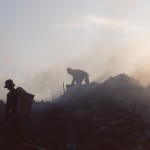
The smoke and stench blow into the air in Phnom Penh’s huge landfill. Photo by Alan Morgan, taken on 17 September 2011. Licensed under CC BY-NC-ND 2.0Air pollution originates mainly from the burning of fuels such as petroleum, diesel and coal in the transport, household, ...
Budget
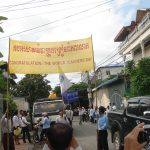
Cambodian Independent Teachers’ Association and Free Trade Union of Workers of the Kingdom of Cambodia celebrated the World Teacher Day from Cambodia. Photo by Education International, taken on 5 October 2009. Licensed under CC BY-NC 2.0Cambodia’s national budget determines state expenditures and revenues. It is ...
Community fisheries
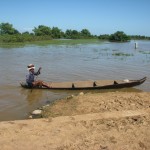
Community fishery refuges, Battambang, Cambodia. Photo by Alan Brooks/WorldFish, taken on 2 November 2011. Licensed under CC BY-NC-ND 2.0.Fishing practices in Cambodia are classified into three broad categories: small-scale or family fishing, medium-scale and large-scale or commercial fishing.In 2001, aware of the need to safeguard ...
Land sales and trades
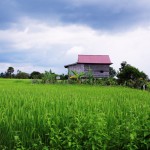
The legal framework surrounding land sales and transfers was obliterated by the 2007 Civil Code, leaving little legal guidance. Forced land sales and distress sales are a substantial cause of land tenure insecurity in Cambodia. They are a significant cause of landlessness, and it is ...
Parliament
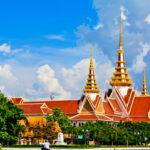
Upon the reinstatement of the second monarchy in 1993, Cambodian citizens are the master of their destiny and sources of all power. With the introduction of the liberal democracy in the Kingdom, all Cambodians at their 18 years or over, except where it is prescribed ...
Ministry of Education, Youth and Sports

H.E. Hang Chuon Naron and Julie Chung in the inauguration of the Rice Academy, Cambodia. Photo by U.S Embassy Phnom Penh, take on 17 September 2014. Licensed under CC BY-NC-ND 2.0In 1996, the Ministry of Education, Youth and Sport (MoEYS) was established.238 Its organization and functioning ...
Primary and secondary education
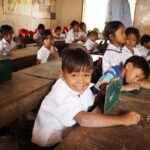
Article 68 of Cambodia’s Constitution states that the Government shall provide free primary and secondary education for all citizens and each individual shall pursue basic education for at least 9 years. Education is a fundamental engine of social and economic development for a country, especially ...



